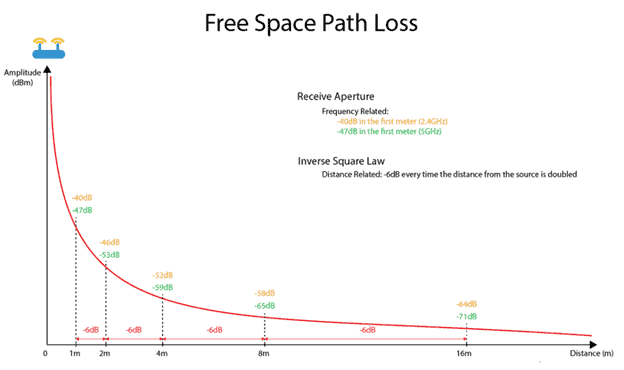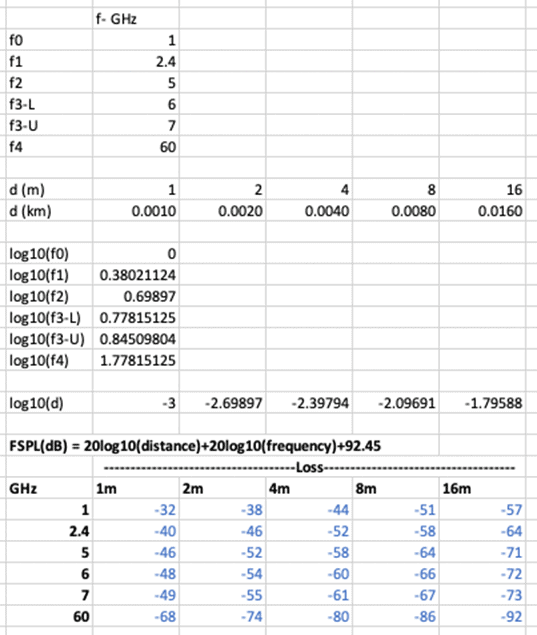Free Space Path Loss
Simply put, Free Space Path Loss (FSPL) is the amount of dissipation of a radio signal, the further it gets from its point of transmission / origin.
Imagine blowing up a rubber balloon. As it expands, we say that the balloon gets "bigger" - the balloon's surface area grows - and the rubber of the balloon skin gets thinner.
Signal strength can be compared to your breath blowing the balloon, because a signal expands ("propagates") in three dimensions (up, down, sideways / 360 degrees around) through the air, as it is transmitted from its source. (Directional antennas are a slightly different story, which is not addressed here.)
Signal strength dissipates because the signal must spread over an ever-increasing imaginary "surface area", as it moves away from its source of transmission. The recipient receives less and less strength-of-signal depending on how far from the source of transmission they are located. (You can think of signal strength in the same way as how thin the skin of the balloon becomes as it gets bigger.)

The graphic as shown here (with permission of my good friend Francois Verges) explains FSPL in a simple way.
Well, I was thinking, what would it be like for 6GHz and also for 60GHz. And, while I am there, how about calculating for 1GHz (approximation of sub-1GHz) as well? So, I did some math. Here are the calculations:*

*The reason I added a 7GHz line, is 6GHz actually goes from just below the start of 6GHz to just above the start of 7GHz. So, if you are using one of the higher channels, it is more applicable to 7GHz than 6GHz.
===
About NC-Expert
NC-Expert is a privately-held California corporation and is well established within the Wireless, Security, and Collaboration industry certification training, courseware development, and consulting markets.
Led by its Founder and CEO, Rie Vainstein, NC-Expert has won numerous private contracts with Fortune level companies around the world. These customers have depended on NC-Expert to train, advise, and mentor their staff.
So remember, if you are looking for the best IT training just call us at (855) 941-2121 or contact us
NC-Expert Blog





